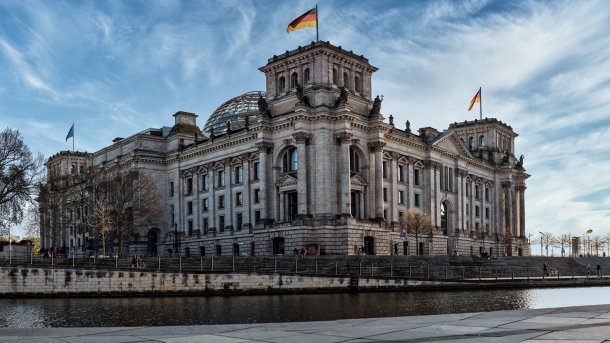Germany: Parliamentary Social Media Spending Questioned by Federal Audit Office
The parliamentary groups in the German Bundestag are violating financial rules in their online public relations work, the Bundesrechnungshof has found.

(Bild: Mummert-und-Ibold/Shutterstock.com)
All parliamentary groups in the German Bundestag violate financial regulations with their appearances in social networks: they advertise their political parties rather than their parliamentary groups. But they are not allowed to do so. The Federal Audit Office is calling for clearer regulations and higher penalties.
The parliamentary groups in the Bundestag receive a total of 140 million euros a year from the federal budget. They also use these funds to finance their public relations work, including their appearances on social networks. The Bundesrechnungshof audited how the parliamentary groups used their presence on Facebook, X, Instagram and YouTube immediately before the last Bundestag elections in 2021. The results show that the parliamentary groups "predominantly did not adhere to the strict legal requirements".
This is because the parliamentary groups are allowed to use the money from the tax pot to publicize their own work, but they are not allowed to advertise for campaigning parties. But that is precisely what they do.
Over 75 percent of postings inadmissible
In the week leading up to the 2021 Bundestag elections, the parliamentary groups violated the MPs Act with at least 75% of their posts on the audited social networks, according to the Bundesrechnungshof's report. For example, all nine posts published by the SPD parliamentary group at the time were inadmissible due to party or election advertising. The same applies to 187 out of 193 posts by the left-wing parliamentary group at the time. The situation was not much different for the CDU/CSU, Greens, FDP and AfD parliamentary groups.
The culprits consider the "narrow legal requirements to be impracticable" and therefore did not accept them, according to the Bundestag. "The legal framework for the use of social media by parliamentary groups requires reform", the auditors conclude. The current legal situation is inadequate and makes it easier to circumvent the ban on covert party funding. Particularly in connection with elections, the financing of parliamentary groups could violate the constitutional requirement of equal opportunities for parties.
Clear edges, swift penalties
The auditors' appeal is therefore: "Legislators and the Council of Elders of the German Bundestag should reform the legal rules for the public relations work of parliamentary groups and specify them with sub-legislative standards in such a way that what is and is not permitted is binding, clear and up-to-date for all players." The Court of Audit also criticizes the fact that violations are not punished, and effective sanction mechanisms are lacking. It therefore proposes that "a practicable and legally secure demarcation between factional, externally directed information work and party-related content" be stipulated in the Members of Parliament Act. Detailed questions could be clarified by implementing provisions of the Council of Elders.
Regarding the sanction mechanism, the Court wants to make the parliamentary administration responsible. Only it could be the competent body for "the legally binding examination and assessment of measures taken by the political groups and for sanctions against them". In concrete terms, he proposes "fines with a flat-rate minimum amount" to make violations "unattractive". The inspectors can also envisage a deletion obligation for inadmissible posts. This would ensure "that the disadvantages of the sanction outweigh the advantages of the unlawful use of parliamentary group funds". Penalties would also have to be effective in the short term. After an election, they would remain "largely ineffective".
(ds)